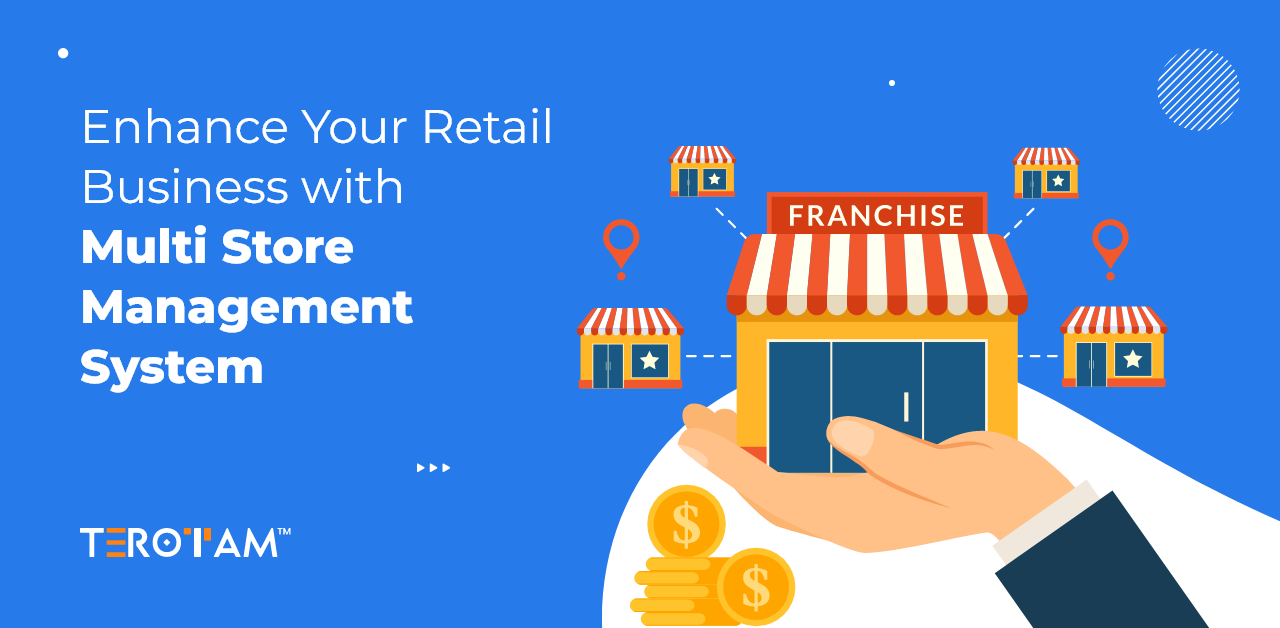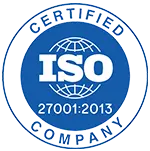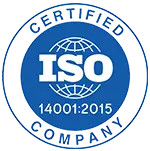Do you find it difficult to manage or maintain your expanding network of retail outlets under control? Do you discover that as your company grows, the challenges of asset management and tracking, inventory management, maintenance management workforce collaboration, and data analysis are becoming more and more difficult to handle?
In that case, you are not alone. If you compare this situation, it sounds like juggling torches while pedaling a bicycle on a tightrope. Because the stakes are so high, there is little room for error, and poor decision-making could have disastrous financial repercussions. This is where you need a systematic solution that keeps your business separate from juggling tricks. However, the Multi-Store Location Management System is a game-changing solution just around the corner.
We’re about to explore all the compelling arguments for why this game-changing technology is not only essential for your retail business but also positively essential to its success.
Let’s get started.
What is a Multi Store Management System?
A Multi-Store Management System is a specialized software solution designed to streamline and centralize the operations of multiple retail stores within a single, cohesive platform. This system encompasses a range of features and functionalities to simplify the complexities of running multiple locations.
It empowers businesses to efficiently manage inventory, sales, employee scheduling, and data analytics, all from a unified interface. It acts as the nerve center for retail operations, facilitating smoother coordination and decision-making while enhancing the overall customer experience.
With a Multi-Store Management System in place, businesses can overcome the challenges of managing multiple stores and position themselves for scalable growth and success in the competitive retail landscape.
Challenges in Managing Multi-Store Retail Business
Managing multiple retail stores presents many challenges, encompassing inventory management, employee coordination, and asset-related complexities. Coordinating stock levels in real-time, avoiding overstock or stockouts, and ensuring a unified customer experience demands meticulous attention.
Employee management can be challenging, encompassing tasks like scheduling and maintaining consistent service quality. Moreover, scattered data impedes informed decision-making.
Asset management and tracking across numerous locations add further complexity. Efficiently utilizing and maintaining assets to control costs is crucial, as is tracking asset locations and conditions to prevent losses. Coordinating maintenance schedules and tracking history becomes paramount to ensure operational efficiency. Without a centralized system, inefficiencies can infiltrate processes, leading to resource wastage.
These multifaceted challenges emphasize the pressing need for a comprehensive solution that streamlines operations, enhances asset management and tracking, and bolsters retail businesses’ ability to thrive in today’s competitive market.
Reasons for Implementing a Multi-Store Location Management System
Easy Asset Management and Tracking
Integrated asset management and tracking capabilities help you efficiently manage and monitor assets such as equipment and fixtures across multiple locations. This ensures optimal asset utilization and minimizes the risk of loss or damage.
Improved Inventory Management
One of the primary advantages of a multi-store management system is real-time inventory tracking. This capability allows you to monitor stock levels across all your stores, reducing the risk of overstock or stockouts. When you know exactly what’s in stock, you can make smarter purchasing decisions and avoid unnecessary costs.
Enhanced Sales and Customer Service
Multi-store management systems enable consistent customer experiences by providing a centralized view of customer data and purchase history. This means you can offer personalized promotions and loyalty programs across all your stores, ultimately increasing customer satisfaction and sales.
Streamlined Staff Management
Scheduling and communication among employees are simplified with a multi-store management system. You can coordinate shifts, manage payroll, and ensure that your staff is always updated with the latest information, leading to better operational efficiency and reduced administrative overhead.
Complaint Management
Address customer complaints effectively by utilizing complaint management tools. Track, analyze, and resolve customer issues across all your stores, improving customer satisfaction and loyalty.
Effortless Ticket Management
Keep your retail locations in top condition by efficiently managing maintenance tickets for repairs and maintenance with simply scanning the QR code. This ensures that maintenance tasks are addressed promptly, minimizing downtime and ensuring a safe and inviting shopping environment.
Document Management
Centralized document management simplifies storing and retrieving essential business documents and records. This ensures that important paperwork, contracts, and compliance documents are easily accessible and organized.
Approval Management
Streamline approval processes for various operational tasks, such as purchase orders and employee requests, using digital signature and other approval management features. This ensures that critical decisions are made promptly and complying with company policies.
Better Data Analytics and Decision-Making
Data is the lifeblood of retail, and multi-store management systems provide comprehensive data analytics tools. These systems collect and analyze data from all your stores, helping you make informed decisions about pricing, inventory management, and marketing strategies.
Scalability and Growth
As your business expands, multi-store management systems can grow with you. Adding new stores becomes a seamless process, and you can adapt the system to accommodate changes in your business structure, ensuring you’re always prepared for growth opportunities.
How to Choose the Best Location Management System for Your Multi-Store Retail Business?
Choosing the right Multi-Store Location Management System (MLSMS) for your retail business is a pivotal decision that can significantly impact your operations and growth. The ideal location management system should be highly scalable, effortlessly integrating with existing systems, and offering ample room for customization to adapt to your unique business requirements.
A user-friendly interface ensures smooth adoption by your staff, while robust data security measures safeguard sensitive information. Real-time reporting and analytics capabilities empower you to make informed decisions promptly.
Mobile accessibility allows for flexibility in monitoring and managing your stores, even remotely. Adequate support and training, cost-effectiveness, positive references, and a commitment to future updates are the criteria for selecting the best Location Management System for your retail enterprise.
Quick Checklist of Selection Criteria for Multi Store Location Management Solution:
- Scalability for business growth: Ensure the system can scale as your business grows.
- Compatibility with existing systems: Check for seamless integration with existing systems.
- Customization to meet unique needs: Ability to tailor the system to your unique needs.
- User-friendly interface for ease of use: An intuitive interface that your employees are able to navigate easily.
- Data security measures for protection: Robust measures to protect business and customer data.
- Real-time reporting and analytics access: Access to up-to-date data for informed decisions.
- Mobile accessibility for flexibility: Remote access via mobile devices for flexibility.
- Support and Training Availability: Reliable support and comprehensive training.
- References and User Reviews: Seek references and read reviews from those who have implemented the location management solution you’re considering.
- Commitment to Future Updates and Enhancements: Inquire about the provider’s commitment to ongoing updates and enhancements.
Conclusion
Here if we try to wrap up the whole discussion, the challenges of managing multiple retail stores are undeniably complex and multifaceted. However, with the right Multi-Store Location Management System (MLSMS) in place, these challenges can be effectively addressed, paving the way for enhanced operational efficiency, seamless customer experiences, and sustainable growth.
If you think you are dealing with same growing retailing business and facing issues managing multiple store locations, let’s schedule a quick demo with our experts or write us your thoughts on contact@terotam.com





